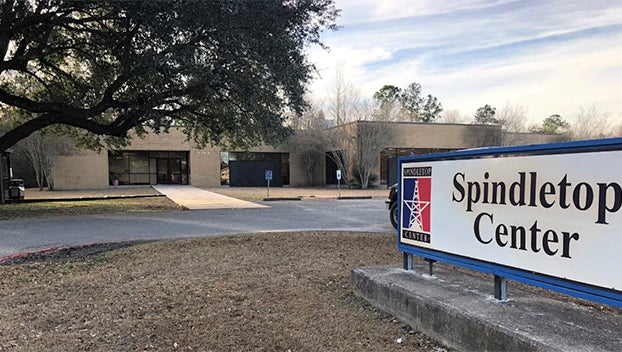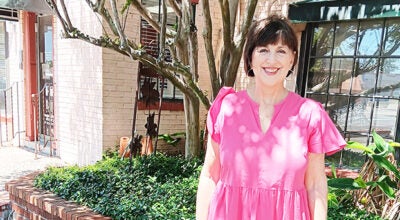Local realtor sees major challenges in Orange’s future
Published 5:42 am Monday, April 23, 2018
By Ginger Broomes
The Orange Leader
When Cullin Smith was a sophomore in college, he was a list maker. He made a list of all the things that appealed to him, stockbroker, realtor, even toying with idea of being a vet. Luckily his professor convinced him to take up real estate and he’s been in the business locally since 1993, buying up real estate and making them into rental properties.
He began to notice that all the real estate transactions bottlenecked at the title company.
So in 2001, he bought Security Abstract which, having been created in 1901, is the oldest abstract company in Orange, and now the only one owned locally.
The best time for his business was 2017, because of several large real estate transactions, along with picking up more business due to the sale of his competitor. The worst year was 2009, after the bottom dropped in 2008.
“Everyone ran scared, lending had tightened up,” Smith said.
For past couple years, Smith’s seen the trend of more cash transactions, speculating that people are concerned about the stock market, but also wanting immediate return on their investment properties.
When asked about the real estate market in Orange over the years, “If you look at real estate kind of being a water hose, Orange is at the end of the faucet. Things are happening, and then by the time it gets to us, it’s either been good for some time, or we’re at the end and it’s fixing to get bad.”
Like everyone else in southeast Texas, Smith has seen the effects of Harvey on the real estate business, if not personally. He admits he was very lucky, as no one in his family had damage and his building remained unscathed.
His business on 16th Street, across from Northway shopping center, was a staging area for the Cajun Navy, because “it was high and dry”, built by him with the elevations shot off of Highway 87 because of the designated evacuation route, and built up from that. But changes instigated by Harvey would come.
“Before the flood I may have had flood insurance on one house I own,” Smith said. “So I was completely naked out there when it comes to flood insurance and I was just blessed that I didn’t get hit. I had three rent houses get hit. Two in Orange, one in Deweyville that flooded in March 2016 and again during Harvey. So I got to rebuild it twice.”
Ironically, and, luckily, with 50 rental units in Vidor not one flooded. All of those were apartments upstairs.
“The impact was so great. Broad. The effects of the damage,” Smith said. “When you’re in business you try to spread your risks. I had properties in Vidor, Deweyville, and Beaumont. Your assumption is, well, if something happens here I still have the others to take care of. You don’t think about the entire area being under and all your properties being hit.”
“You would think that 25 – 30 miles would be enough of a spread, you would think Orange or Beaumont flooding, but not all the area flooding,” Smith added.
He is seeing a lot of people that are selling their last house, then taking their proceeds and going elsewhere. Particularly with the older population who, having already lived through Ike and Rita, don’t have it in them to rebuild a third time, choosing instead to leave the area and move closer to children and grandchildren.
“They’ve lived in an area that their grandparents have lived in and it’s never flooded,” Smith.
Until Harvey.
Real estate transactions just started slowing down this month. A local realtor had one customer wanting to come in and look at houses in 180k range, stipulating that it couldn’t have flooded. That realtor had one house to show him.
He believes that houses are selling for half because they’re gutted. This means realtors have to make twice the sales to make what they did last year. People aren’t selling them themselves, but the market has become tight – there’s just nothing to sell. People with rental properties haven’t been able to fix their homes yet; so not only are they losing that monthly income, but still paying on the home.
He knows one investor that has owned 15-20 units 12 years. He had to go back and borrow all of his equity out again to rebuild them, so he’s had the properties for 12 years and is starting over again.
He believes these kind of events (disasters) are good indicators of those that were good stewards of their businesses. It also reflects those that had marginal businesses to begin with.
“Payless had already filed bankruptcy (before Harvey) and was probably a marginal store that can’t warrant spending the money to rebuild,” Smith said. “Aaron Rents, they went out of business and chose not to rebuild, instead selling the business for relocating Domino’s pizza facility.”
“When you lose a business and gain a business you don’t get ahead,” Smith said. “You look at these plant people, when they’re told they’re going to transfer, they look at what’s happened the last several years, no homes to buy.”
When asked what he’s seeing for the future of Orange, he says historically things like this take a minimum of 10 years to fully recover, citing an example of the city just given approval to do some repairs that became needed after Hurricane Ike.
“If we’re taking people that would’ve spent money on entertainment and leisure and now they’re putting it into sheetrock and doors, you know, something’s gotta give,” Smith said. “These are good people that were doing everything right. Mother Nature just threw a curve at them.”
Smith states that rental market is great, although properties aren’t as available as they were before. Less supply however means that those that are available go quickly and are in high demand.
Smith was going to buy some properties and make some more rental properties but the cost of construction has gone up too much. Around town, he sees contractors that can’t get subs, like the First State Bank construction on MLK, where the contractors have trouble getting subcontractors to show up. With their pick of construction jobs to choose from, the workers the contractors need are going elsewhere.
“I think there are always things that can be done,” he said, when asked about how we entice new businesses/people in.
“Long term we need to put together a plan for #1 clean up, and #2 plan for future growth of 16th street. Problem is the way it was designed back when the military put it in,” Smith said. “Ran the utilities in between the houses there, if you’re on 16th street you can’t buy a big lot and put a building in because the utilities that are there. Relocate those utilities. A good example of showing how that works is Putnam Plaza, it was a cul de sac. Owner went in and bought the entire depth, since it was a terminal he was able to convince the city of Orange and the utilities to pull this back and then he built here. That was able to give him the depth to build his location, have his set back requirements, because he could buy those two lots and fully use those two lots. “
“And look at HEB. They were able to do that because the utilities terminated there. So if the city, the economic council, if they would spend money — and I don’t know that I have all the answers, I’m not saying they should acquire these — make these lots where they could make them deep, you could put large facilities, you could have the space you need instead of a little 120 foot lot. But the city’s not looking at that,” Smith continued. “So consequently you have houses on 16th street that are run down, a family with kids doesn’t want to live there because there’s too much traffic. They can’t be used for anything else. Because they’re too small, so what do you do?”
“16th street is the main corridor yet the city refuses to recognize it and do what they can to open it up for new development” Smith added. “I’ve asked them to do that and they’re like, it will take 20 years. I’m like, you won’t be here in 20 years? I’m chairman of the planning and zoning commission, I haven’t seen any plans coming in. We just need some people with a vision and something that would generate economic returns.”
He’s working with a businessman residing on 16th street, who wants to move out to MacArthur, due to the limits of lot size on 16th street. This is problematic because when businesses move out to MacArthur, not all of that is in Orange. Businesses that move from 16th Street are now located in Pinehurst or West Orange. He wonders what will happen when HEB moves out there.
“Orange needs to change the way it looks,” Smith said. “Coming in off the highway, looks like a war zone. All I know is that is on my properties I pick my stuff up. Needs to be some new approaches. Not a lot done.”
I ask him if that is after Harvey. He says no.
According to Cullin Smith, Harvey just amplified what’s already wrong.





